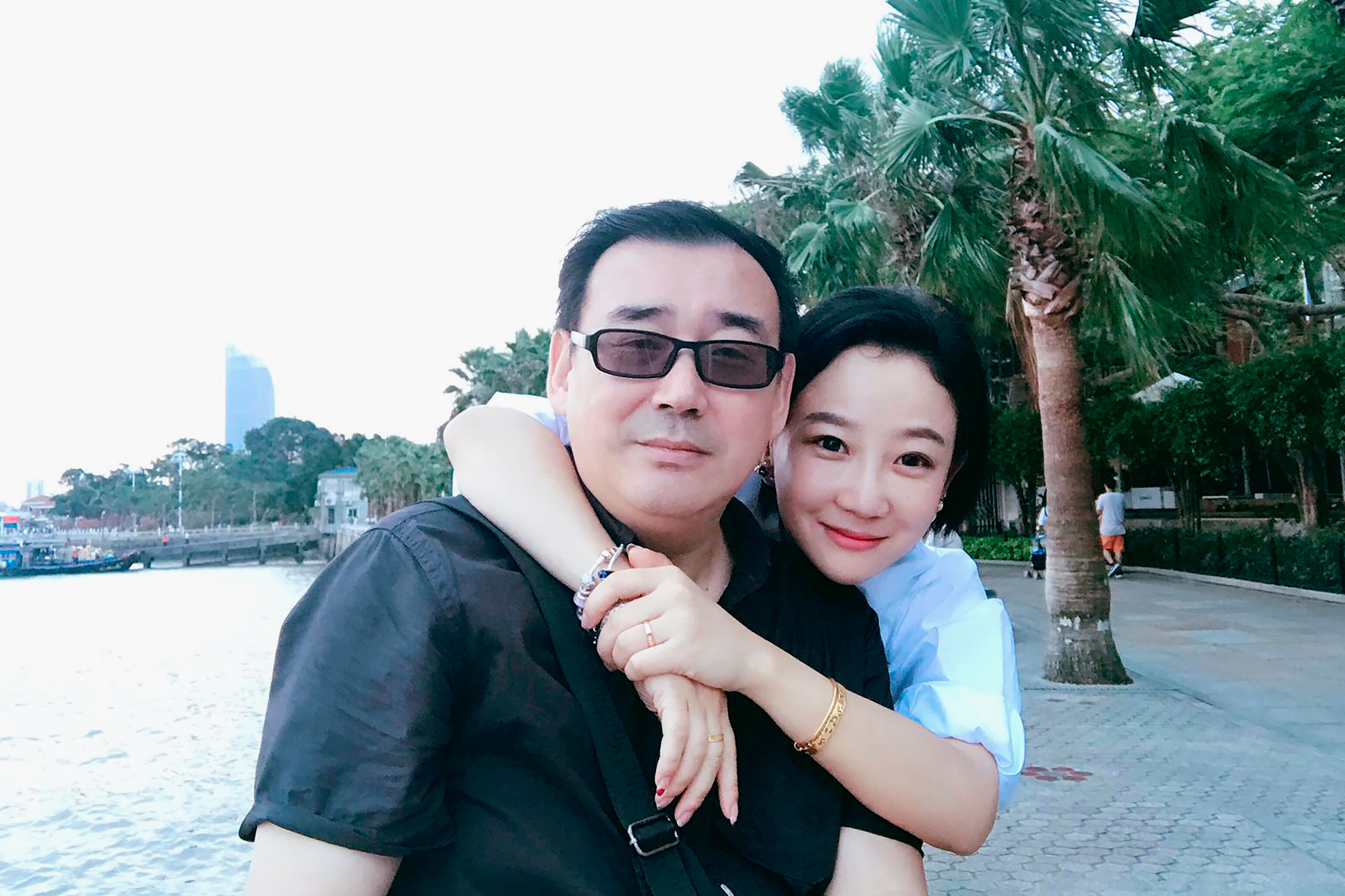Australian academic Yang Hengjun handed suspended death sentence by Beijing court
Yang Hengjun’s family says they are ‘shocked and devastated’ by court order

Your support helps us to tell the story
From reproductive rights to climate change to Big Tech, The Independent is on the ground when the story is developing. Whether it's investigating the financials of Elon Musk's pro-Trump PAC or producing our latest documentary, 'The A Word', which shines a light on the American women fighting for reproductive rights, we know how important it is to parse out the facts from the messaging.
At such a critical moment in US history, we need reporters on the ground. Your donation allows us to keep sending journalists to speak to both sides of the story.
The Independent is trusted by Americans across the entire political spectrum. And unlike many other quality news outlets, we choose not to lock Americans out of our reporting and analysis with paywalls. We believe quality journalism should be available to everyone, paid for by those who can afford it.
Your support makes all the difference.Australian-Chinese writer Yang Hengjun has been sentenced to death in China five years after he was accused of spying, foreign minister Penny Wong confirmed.
It is a suspended sentence that can be commuted to life imprisonment after two years.
Yang, a pro-democracy blogger, was arrested at the Guangzhou airport in 2019 and booked for spying on an undisclosed foreign country. He received a closed-door trial in Beijing in May 2021. Yang has maintained innocence since his arrest. “I will never confess to something I haven’t done,” he said in 2020.
Yang‘s sentence was confirmed by another human rights lawyer in Beijing who has been following his case. “He was found guilty of all charges,” the lawyer said, asking to remain anonymous because of the sensitivity of the matter.
Calling his sentencing “harrowing” and “appalling”, senator Wong summoned China’s ambassador for an explanation. The government has also petitioned for his release.
“We have consistently called for basic standards of justice, procedural fairness and humane treatment for Dr Yang, in accordance with international norms and China’s legal obligations,” Ms Wong said.
“All Australians want to see Dr Yang reunited with his family. We will not relent in our advocacy.”

His family said they were “shocked and devastated” by the court order, calling it “at extreme end of worst expectations”.
Calling it a “serious case of injustice”, Sydney-based scholar Feng Chongyi said Yang “is punished by the Chinese government for his criticism of human rights abuses in China and his advocacy for universal values such as human rights, democracy and rule of law”.
He urged the Australian government to seek medical parole for Yang, saying five years of detention had taken a heavy toll on his health.
Yang was born in China and was a diplomat and state security agent before moving to the private sector in Hong Kong and later Australia. He became an Australian citizen in 2002.
Yang wrote about Chinese and US politics as a high-profile blogger and also wrote a series of spy novels before his detention.
His two sons, who live in Australia, wrote to prime minister Anthony Albanese in October on the eve of his visit to Beijing, urging him to seek Yang‘s release on medical grounds.
In August last year, Yang had told his family he fears he will die in detention after being diagnosed with a kidney cyst, prompting supporters to demand his release for medical treatment.
Ms Wong said Australia “will be communicating our response in the strongest terms” and will continue to press for Dr Yang‘ interests and wellbeing, including appropriate medical care.
Yang had been detained in China for a short period once before, in 2011, on suspicion of links to online democracy activists. He was released after a few days following interventions by the Australian government.
At the time, he wrote to Mr Feng to say he had worked for China’s Ministry of State Security for a decade starting in 1989, including in Hong Kong and Washington, before quitting and moving to Australia, Mr Feng had told Reuters.
Yang migrated to Australia in 1999 and became an Australian citizen in 2002, undertaking PhD studies at Sydney’s University of Technology in 2006, where Mr Feng was his supervisor.
Yang spent the next four years writing spy novels, published in Taiwan, about a double agent, also surnamed Yang.
He was detained as Australia-China ties deteriorated in 2019. But hopes of his release had been raised by the release of Australian broadcaster Cheng Lei shortly before Albanese visited China last year.
“The verdict casts a shadow over bilateral ties and will for some time, as it acts as a potent reminder of the opacity of the Chinese system and its imperviousness to reasonable foreign complaints,” said Richard McGregor, senior fellow at the Lowy Institute in Sydney.
James Laurenceson, director of the Australia-China Relations Institute at the University of Technology Sydney, said that Beijing had said it wanted to move beyond the stabilisation of ties with Australia, but that the sentence would make a thaw harder.
“This decision makes it extremely difficult for the Albanese government to do so in terms of managing the domestic politics. The strong language already used by foreign minister makes plain their disappointment,” he said.
Elaine Pearson, who heads Human Rights Watch in Asia, said the sentence was “outrageous”, and called on the Australian government to work “with other governments that also have their citizens arbitrarily detained” including Canada, Japan and the United States.
Additional reporting by agencies
Subscribe to Independent Premium to bookmark this article
Want to bookmark your favourite articles and stories to read or reference later? Start your Independent Premium subscription today.
Join our commenting forum
Join thought-provoking conversations, follow other Independent readers and see their replies
Comments